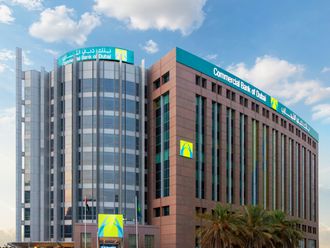Dubai: The big surge happening in the global Islamic finance sector is expected to benefit Dubai as it pitches to become a global Islamic financial hub, analysts from Standard & Poor’s rating services said on Tuesday.
“Global Islamic Finance is expected to maintain its rapid pace of growth, strengthening itself as a real alternative to conventional finance. With strong growth in Islamic finance in the region in the form of rising sukuk issuance, creation of innovative Islamic financing structures and increasing number of corporate and government related entities (GREs) raising long term funding through Islamic financing, Dubai can play a key role in building Islamic capital market infrastructure,” said Stuart Anderson, Managing Director & Regional Head, Middle East at Standard & Poor’s.
The sukuk issuance this year is seemingly struggling to match last year’s exceptional growth due to tougher market conditions. Worldwide year-to-date issuance dipped 25 per cent from last year to $77.4 billion (Dh284.290 billion), as of September 22, 2013. Despite the third quarter slowdown, S&P believes 2013 sukuk issuance is on course to cross the $100 billion mark. “The global sukuk market remains limited in size and a handful of large issuances can transform what appears to be a slowdown story into an upbeat one. In the past two years, several ‘jumbo-sized’ issuances, in excess of $3-4 billion, have significantly accelerated growth,” said Anderson.
In the third quarter, the Gulf region witnessed a slowdown in issuance largely because of rising yields driven by the expectation that the US Fed would cut the bond buying programme. But with the Fed deciding to postpone the cuts, the yields have flattened. “We expect more issuers from the region to tap the market as the yields are down while the supportive environment is boosting the prospects of sovereigns, government related entities, financial institutions and banks raising long term funding through sukuk,” said Karim Nassif, Associate Director, Infrastructure of S&P.
Analysts said some of the recent innovations in the sukuk sector look promising — for instance the shortage of instruments to boost capital base or allocate excess liquidity into Sharia-compliant investment options. Other innovations include the use of hybrid sukuk by GCC banks to strengthen capital and the ‘International Islamic Liquidity Management (IILM) 2 SA’ vehicle set up by Malaysia-headquartered IILM Corporation to better manage short-term allocation of excess liquidity.
S&P analysts expect Africa with significant Muslim population will be the next frontier of sukuk expansion. “With most Sub-Saharan African countries running large fiscal and current account deficits, are currently financed conventional bonds. There is clearly an opportunity for Sukuk issuance,” said Nassif.










